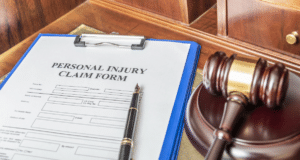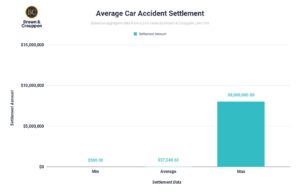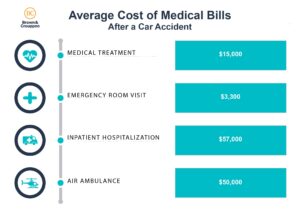Common Symptoms of Post-Concussion Syndrome (PCS)
A concussion is a mild traumatic brain injury (TBI) that occurs when the brain is jolted or shaken inside the skull. This type of injury can happen during a car accident when the head hits an object or is subjected to a rapid, forceful movement. The effects of a concussion can range from mild to severe and may last from a few days to several months or longer.
The duration of concussion symptoms varies widely among individuals. Generally, most people recover from a concussion within 10 to 14 days. However, for some, symptoms can last several weeks or even months, a condition known as Post-Concussion Syndrome (PCS).
PCS is characterized by a range of persistent symptoms that continue beyond the usual recovery period. These symptoms can significantly impact daily life and include:
- Headaches: Persistent headaches that may be similar to migraines or tension-type headaches.
- Dizziness: A sensation of spinning or losing balance.
- Fatigue: Excessive tiredness and lack of energy.
- Irritability: Increased frustration and mood swings.
- Anxiety: Feelings of worry, nervousness, or unease.
- Insomnia: Difficulty falling or staying asleep.
- Loss of Concentration & Memory: Trouble focusing, remembering things, or thinking clearly.
- Noise and Light Sensitivity: Increased sensitivity to bright lights and loud sounds.
Risks of Post-Concussion Syndrome (PCS)
PCS can pose significant risks to an individual’s quality of life and overall health. The persistent nature of symptoms can lead to:
- Chronic Pain & Discomfort: Ongoing headaches and physical discomfort.
- Mental Health Changes: Increased risk of depression, anxiety, and mood disorders.
- Cognitive Impairments: Long-term difficulties with memory, concentration, and executive function.
- Reduced Work Capacity: Difficulty maintaining employment or performing job-related tasks.
Common Treatments for Post-Concussion Syndrome (PCS)
Managing PCS requires a comprehensive approach tailored to the individual’s symptoms. Common treatments include:
- Physical & Cognitive Rest: Limiting physical activity and cognitive strain to allow the brain to heal.
- Pain Relief Medications: Over-the-counter or prescription medications to manage headaches and other pain.
- Cognitive Behavioral Therapy (CBT): Therapy to address mood changes, anxiety, and other psychological symptoms.
- Physical Therapy: Exercises and treatments to improve balance, coordination, and physical function.
- Occupational Therapy: Assistance in adapting to daily activities and improving cognitive and physical capabilities.
How to Recover Compensation for a Concussion After a Car Accident


Use our legal checklist to learn what to do after an accident and understand key legal considerations for recovering financial compensation.
If you’ve sustained a concussion from a car accident, you may be entitled to compensation for your injuries. The process involves several steps, including documenting your injury, collecting evidence, and consulting with a personal injury attorney.
Step #1: Documenting Your Injury – Proper documentation is crucial for a successful claim. This includes:
- Medical Records: Detailed records of your diagnosis, treatment, and follow-up care.
- Symptom Diary: A daily log of your symptoms, their severity, and their impact on your life.
- Expert Testimony: Statements from medical professionals regarding your condition and prognosis.
Step #2: Collecting Evidence – Evidence from the accident scene related to your injury is essential. This may include:
- Accident Reports: Official police reports documenting the accident.
- Witness Statements: Accounts from individuals who witnessed the accident.
- Photographs: Pictures of the accident scene, vehicle damage, and visible injuries.
Step #3 Consulting with a Personal Injury Attorney – Our adept legal team at Brown & Crouppen specializes in meticulous evidence gathering and investigation to furnish informed legal counsel tailored to your unique circumstances. Our assistance in concussion injury cases encompasses several aspects:
- Information Compilation: We meticulously compile essential information, including medical records, police reports, visual evidence, and witness testimonies, to construct a comprehensive case file.
- Expert Consultation: Leveraging insights from medical professionals and accident reconstruction experts, we ascertain the severity of injuries, liability, and potential avenues for redress, ensuring a well-informed legal strategy.
- Negotiation: We negotiate with insurance companies on behalf of our clients, advocating for fair compensation for injuries and damages and leveraging our negotiation prowess to secure optimal outcomes.
- Litigation: If negotiations prove unfruitful, we proceed with filing a lawsuit, navigating procedural requirements with precision to initiate formal legal proceedings aimed at obtaining just compensation.
- Settlement Execution: Facilitating the collection and distribution of settlements or judgments obtained, we ensure equitable distribution of proceeds, deducting legal fees and expenses incurred while prioritizing our client’s financial interests.
Get Help With Your Concussion Injury Claim From Brown & Crouppen
If you or a loved one were injured and, as a result, suffered a concussion or post-concussion syndrome, our lawyers are ready to help. Our skilled legal team is committed to providing top-tier legal counsel and representation at no upfront cost to you. We offer free consultations and only get paid if you win your case.
Our leading personal injury law firm has secured over $1 billion in life-changing case results for our clients. We work hard to level the playing field against unscrupulous insurance companies eager to deny the value of your claim. Learn how we can help you recover the total value of your damages by calling (888) 803-1307 or tell us about your case online. Do not wait to take legal action.
Frequently Asked Questions (FAQs)
How do I prove that I suffered a concussion?
Proving a concussion involves comprehensive medical documentation. You will need:
- Medical Records: Detailed notes from healthcare providers diagnosing and treating your concussion.
- Diagnostic Tests: Results from imaging tests such as CT scans or MRIs, if applicable.
- Expert Testimony: Statements from medical experts attesting to your condition and its impact on your life.
How much is a concussion settlement worth?
The value of a concussion settlement varies based on several factors, including:
- Severity of the Injury: The extent of your concussion and its impact on your daily life.
- Medical Expenses: Costs for diagnosis, treatment, and ongoing care.
- Lost Wages: Income lost due to inability to work. Compensation for lost wages may include hourly earnings, benefits, and PTO.
- Pain & Suffering: Compensation for physical pain and emotional distress. Claims of pain and suffering often lead to higher settlements, and are associated with severe and long-term injuries.
How long do I have to file a concussion claim?
In Missouri, you generally have five years to file a personal injury claim from the accident date. In Illinois, the statute of limitations is typically two years. It’s essential to consult with an attorney promptly to ensure you file within the required time frame.








